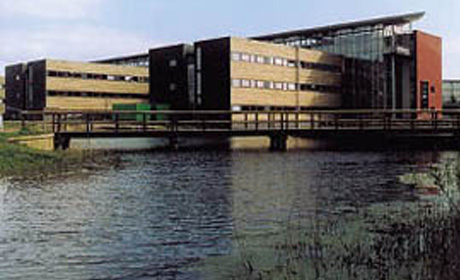BSc Food TechnologyAdd to shortlist
Natural Sciences
Food Science
BSc Food Technology
4 years
€2083 pa
Programme profile
Nowadays, consumers increasingly demand healthy, safe and tasty foods. As a food technologist, you analyse consumers and their demands in terms of marketing, product quality and business administration. Market research, knowledge of production processes and product properties, and, perhaps most importantly, understanding what happens in the human body when we consume food, are crucial in developing new foodstuffs. You study the chemical, microbiological and chemical composition of food, while you also dive into the fascinating world of nutrition, flavour, trends, trade and health. This is a fantastic challenge for creative, technically-minded 'foodies'.
Within the programme, you can choose to specialise in the following areas:
Food Innovation Management
Food Safety and Health
Programme content
Years 1 and 2: The first two years introduce you to the subject area, grouping courses around four themes covering the whole product-development cycle. It all starts with the seed of a new idea. Go to the supermarket, look at the breakfast products section, and ask yourself: can I think of something new or something better? Then there is the technology: how could this new product be made? You also have to think about its commercial feasibility. Finally, you make a prototype product on a 'kitchen' scale. You also have to think about selling the product. In the second year you extend the knowledge gained in the first year by exploring five themes: the consumer:;the entrepreneur; the product; the production process; scaling up production
Year 3 & 4: In the third year you will work on your specialisation.The first six months are devoted to theoretical and practical subjects. In the second half you do an external work placement in a food company. The first half of your fourth year is devoted to an elective study programme (known as a minor). This consists of advanced subjects related to a central theme: nutrition and health, for example, or food safety, or quality and the customer. You can also think up your own theme, and thus start to build up a profile as a specialist and professional. Finally there is the graduation assignment, a project in which you apply your knowledge in a company that fits your major study profile
Progression
The university offers a related Masters programme, taught through English, in the following area:
- Agricultural Production Chain Management
Entry Requirements
2 A-levels and 4 GCSEs (or equivalent) Subjects to include A-Level Maths
Six subjects at Leaving Certificate including at least two 2 at H5. Subjects to include Hons Maths
No
No
Yes: Letter of Motivation
10 October
01 August

 Join us on Facebook
Join us on Facebook